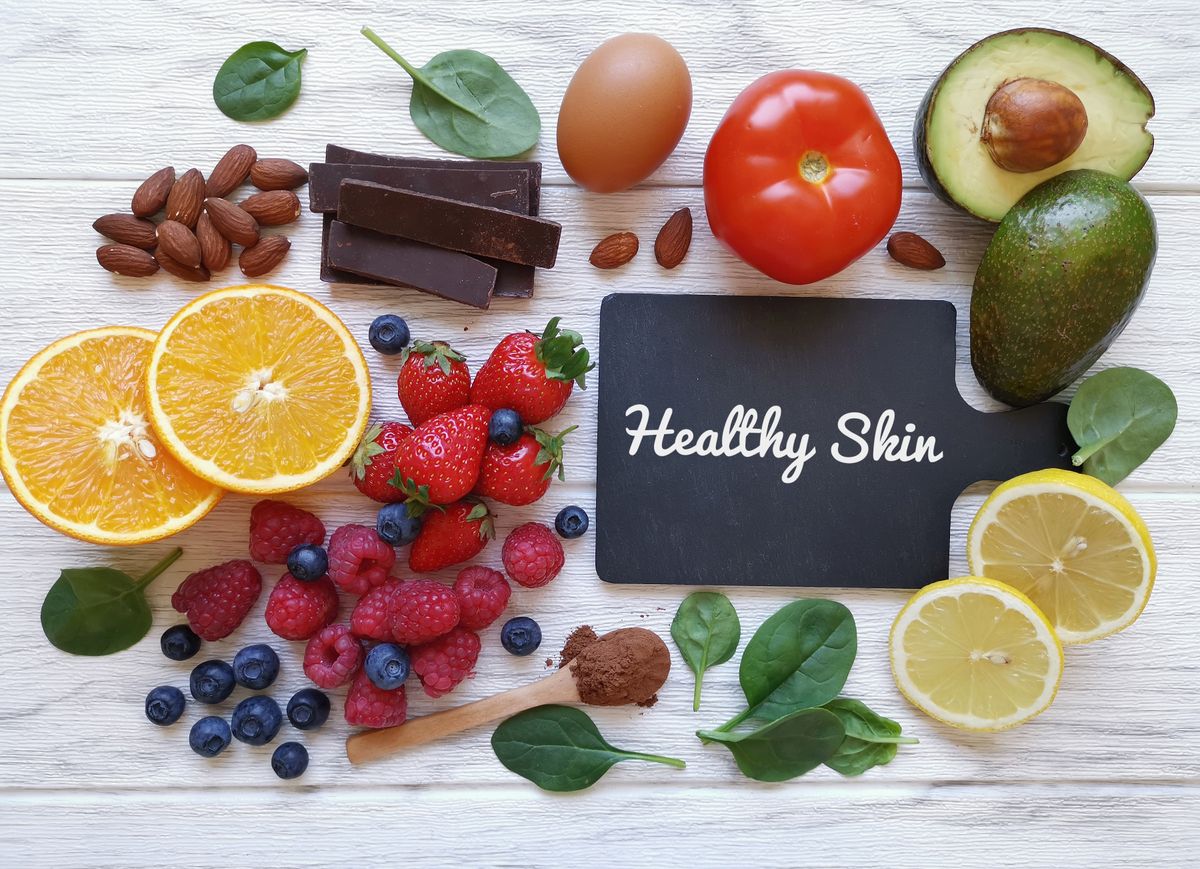Your skin's appearance and overall health are closely tied to your dietary choices. Research has shown intriguing connections between certain foods and skin conditions, such as dairy's potential link to acne, or how water intake influences skin hydration. The intricate relationship between your dietary habits and your skin is a fascinating topic that we will delve into further. If you're seeking to revitalize your skin, look no further than your refrigerator and pantry.
It's no secret that less processed foods tend to be healthier for your body. Minimally processed foods are less likely to contain excessive salt, sugar, preservatives, and additives that can negatively impact both your skin and your overall well-being. When you're striving to enhance your skin's health through your diet, prioritize foods in their natural or near-natural state. Think of fruits, vegetables, lean proteins, nuts, seeds, and certain oils as prime examples of foods with minimal to no added ingredients. When the only ingredient listed is the food itself (for instance, a kiwi labeled simply as "kiwi"), you're on the right track to improving the quality of your diet, which can potentially elevate your skin's health and appearance.
In addition to making thoughtful food choices, ensure you're staying adequately hydrated. There's no one-size-fits-all hydration target, but research has indicated that increased water intake can lead to improved skin hydration levels. For instance, one study found that a group consuming 5.2 liters of water daily experienced better skin hydration compared to a group consuming only 3.2 liters.
Another crucial aspect of safeguarding your skin's health is minimizing sun exposure and wearing sunscreen daily. These measures are essential in protecting your skin from harmful UV rays and preventing long-term damage.
In the following sections, we'll explore the top 14 foods that can work wonders for your skin's health and appearance.
1) Salmon:
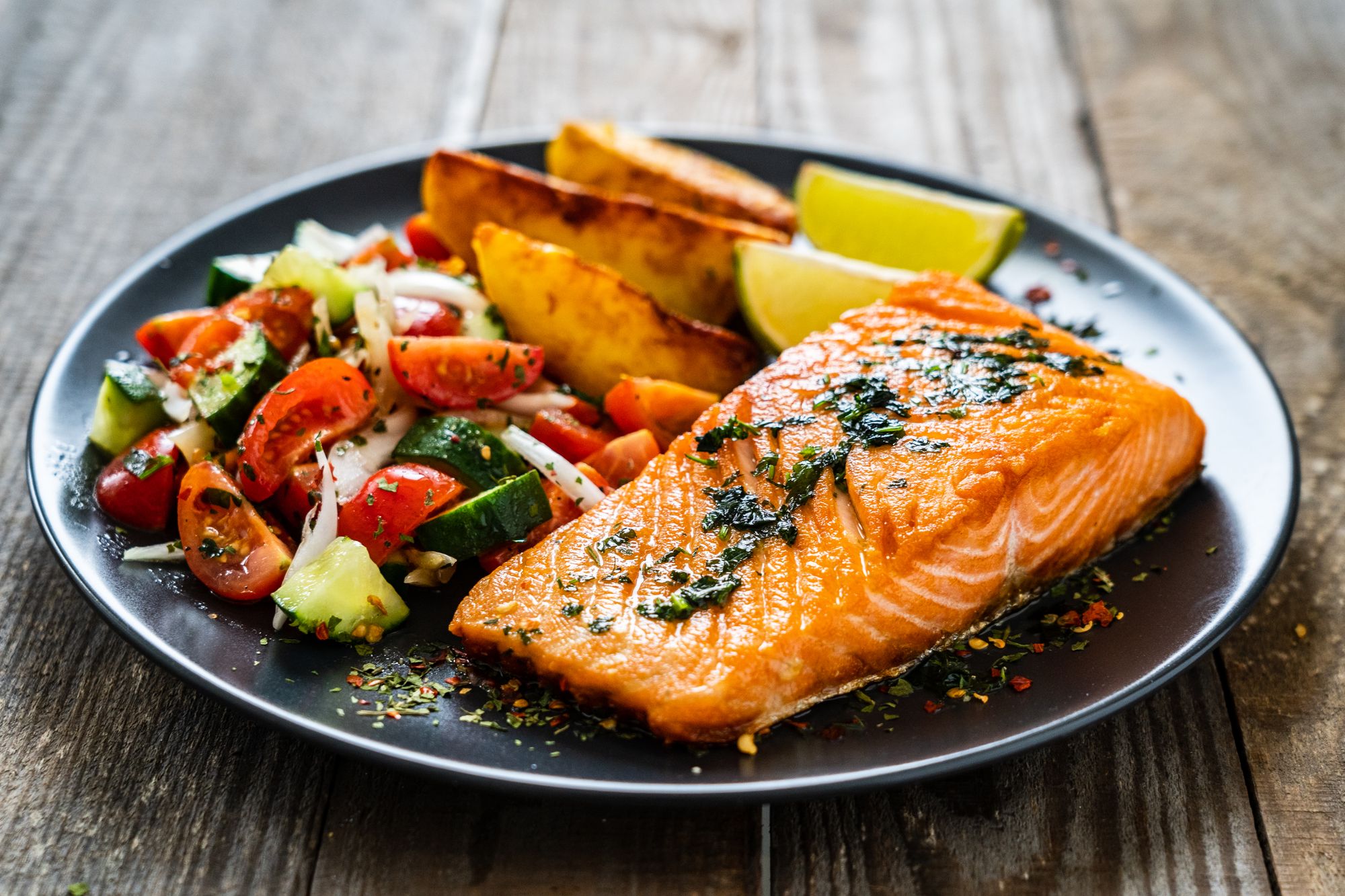
Salmon is a superb source of omega-3 fatty acids, a vital nutrient for skin health. These fatty acids can also mitigate inflammation in the body, potentially reducing the occurrence of acne. If you find shopping for seafood a bit daunting, consider Chilean salmon, renowned for its significant omega-3 content. Moreover, it boasts low mercury levels, making it a safe choice for your entire family, including pregnant women and children. You can savor salmon grilled, baked, or pan-cooked, served over a salad brimming with vitamin C-rich fruits and vegetables, and drizzled with olive oil for additional skin benefits.
2) Walnuts:
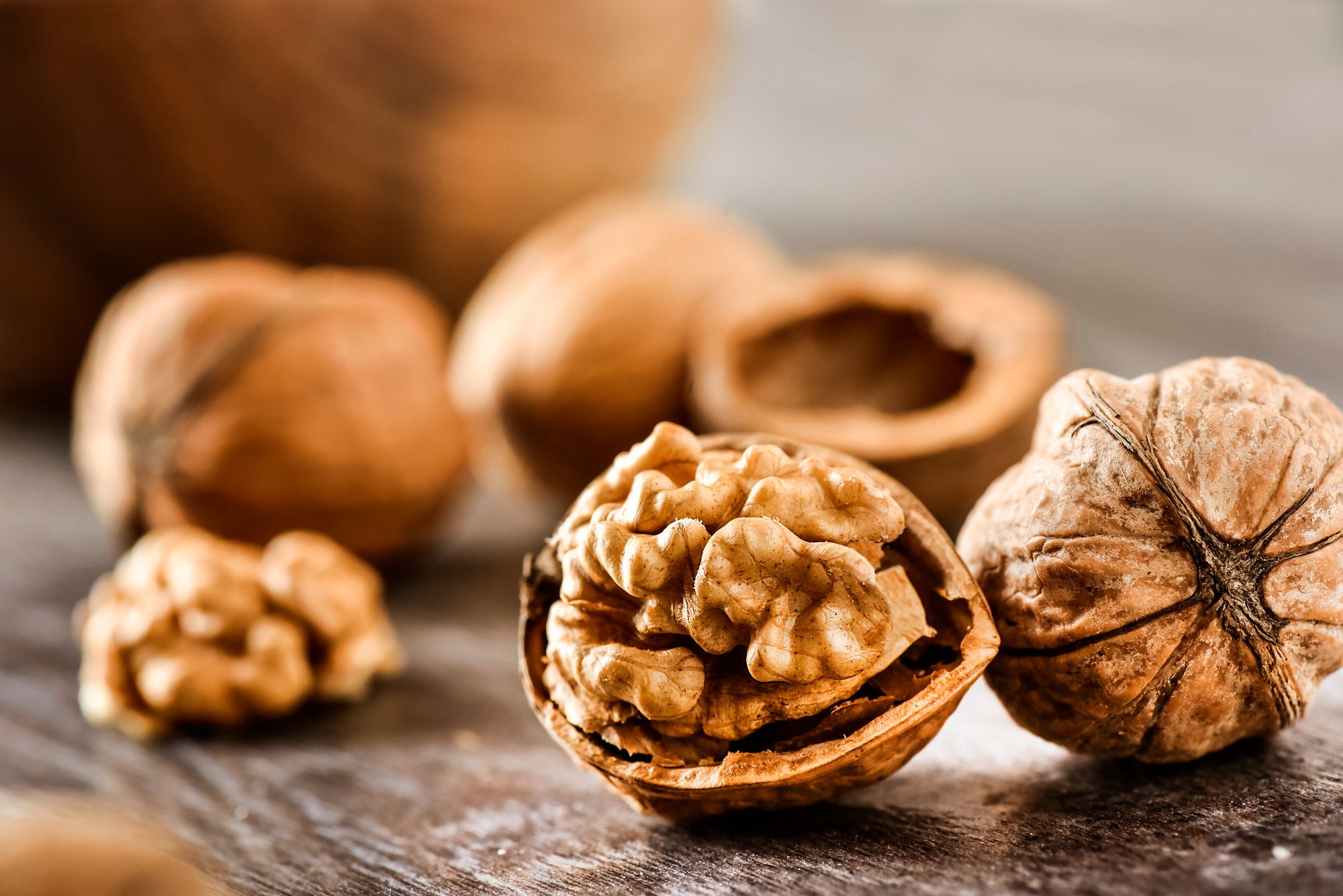
Much like fish, walnuts are a rich source of omega-3 fatty acids. Beyond their ability to enhance your skin, walnuts also provide zinc, another nutrient that supports skin health. Zinc plays a role in skin barrier function, wound healing, and exerts regulatory functions in inflammation and antimicrobial processes. While topical zinc products are used for their skin benefits, the zinc you ingest can make a difference too. Walnuts are a convenient snack or a great addition to your morning oatmeal, homemade trail mix, or as a salad garnish.
3) Avocado:
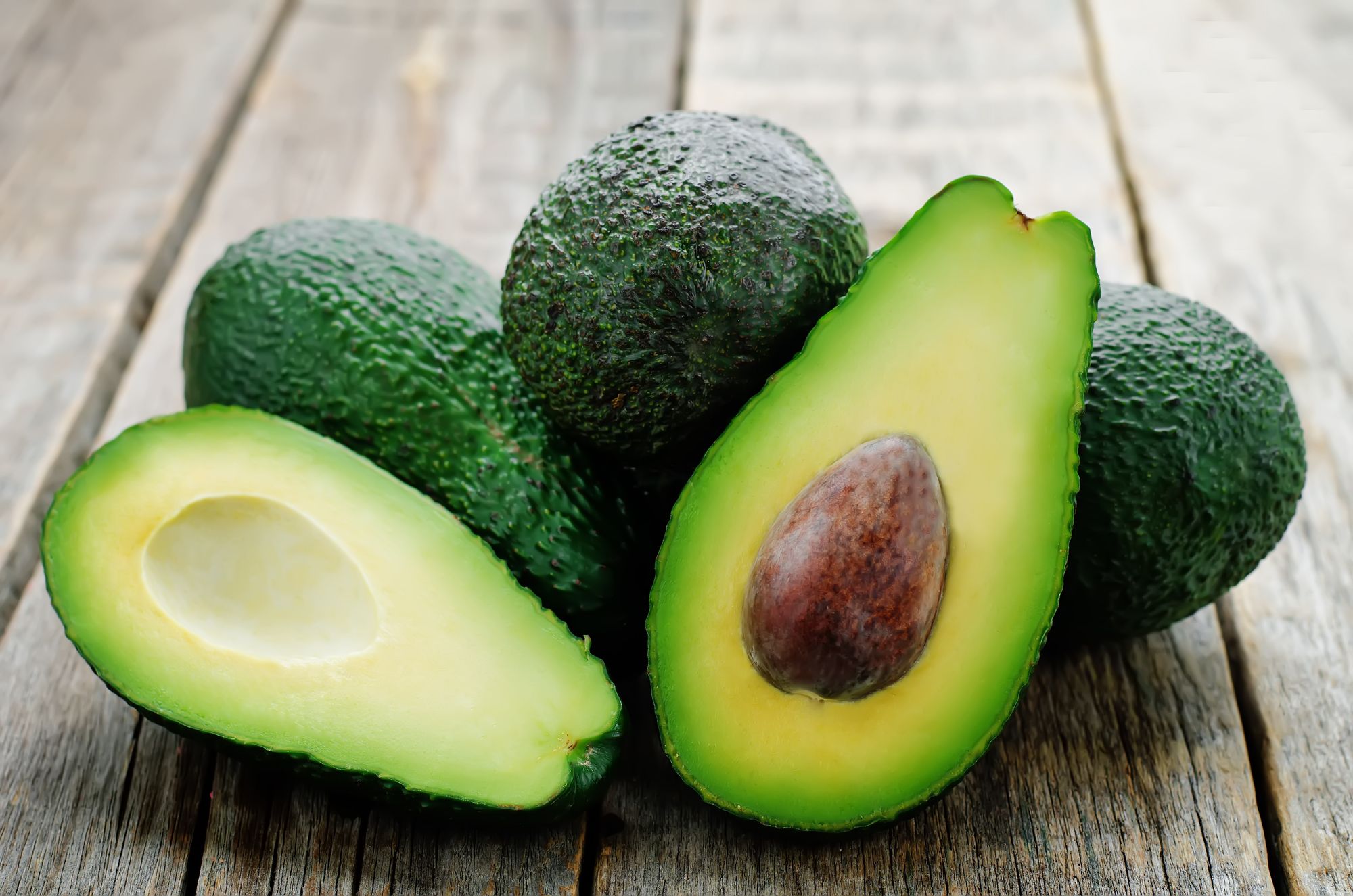
Avocado, with the majority of its calories coming from fat, offers significant skin benefits. Higher consumption of total fat and unsaturated fat, as found in avocados, has been associated with improved skin elasticity, as noted in a study. This research also highlighted that increased intake of green and yellow vegetables is linked to reduced wrinkle scores. Avocados embody both of these qualities and require minimal preparation before consumption. A particularly hassle-free source of avocado is WHOLLY AVOCADO, made with 100% avocado and nothing else. It's always ripe and ready, making it a perfect addition to salads or smoothies. I particularly love the Avocado Minis for their ideal portion size.
4) Tomato:
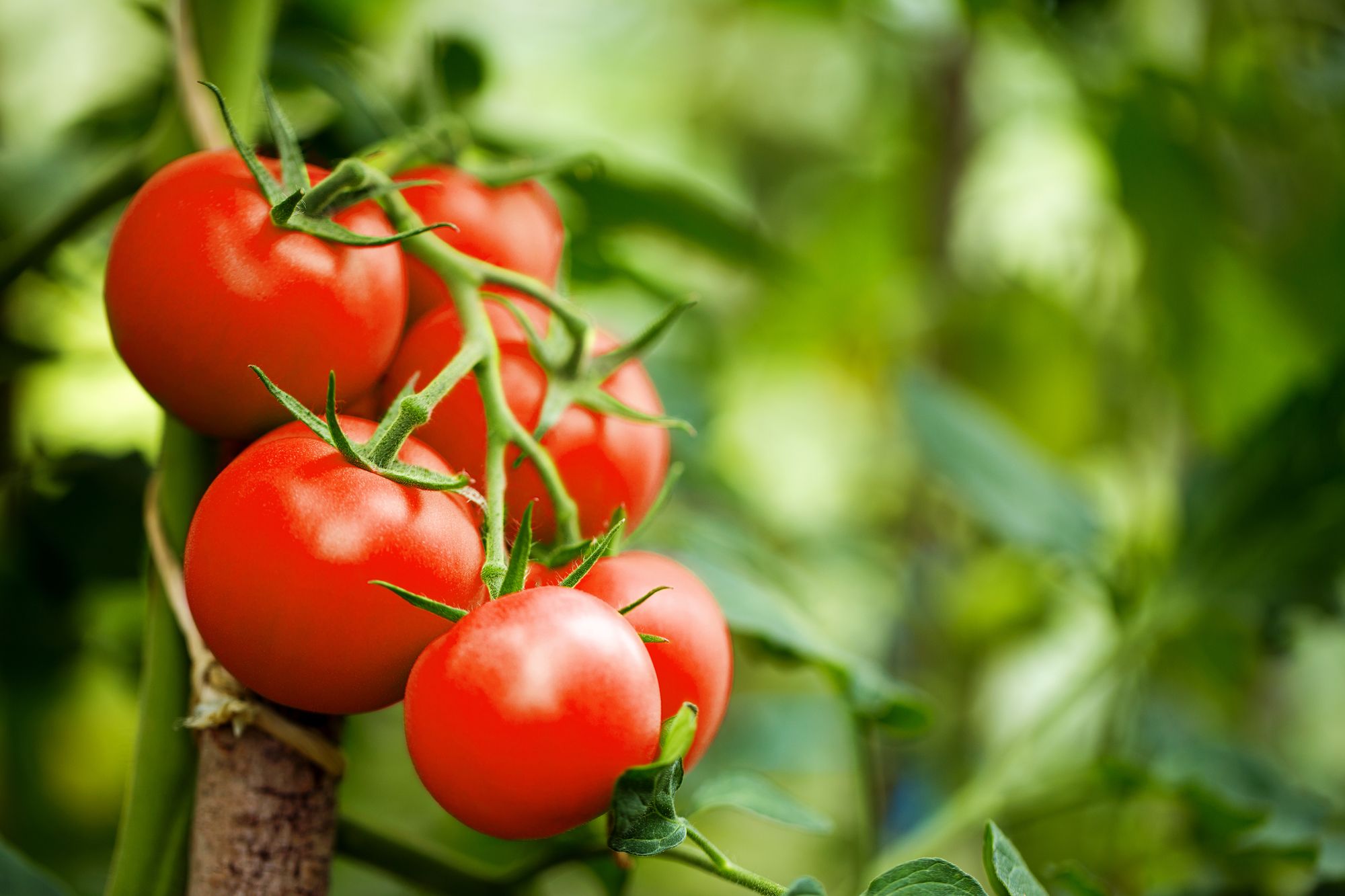
Tomatoes are a rich source of vitamin C, an antioxidant nutrient that contributes to collagen production in your body. Collagen is essential for skin elasticity, promoting a more youthful appearance. Tomatoes also contain compounds like lycopene, which can shield your skin from UV ray damage. Many fruits and vegetables are packed with vitamin C, making them excellent choices for healthy skin. To incorporate more vitamin C into your diet, consider drizzling tomatoes with olive oil, combining them in a salad with green and yellow vegetables, or preparing a refreshing gazpacho soup.
5) Green Tea:
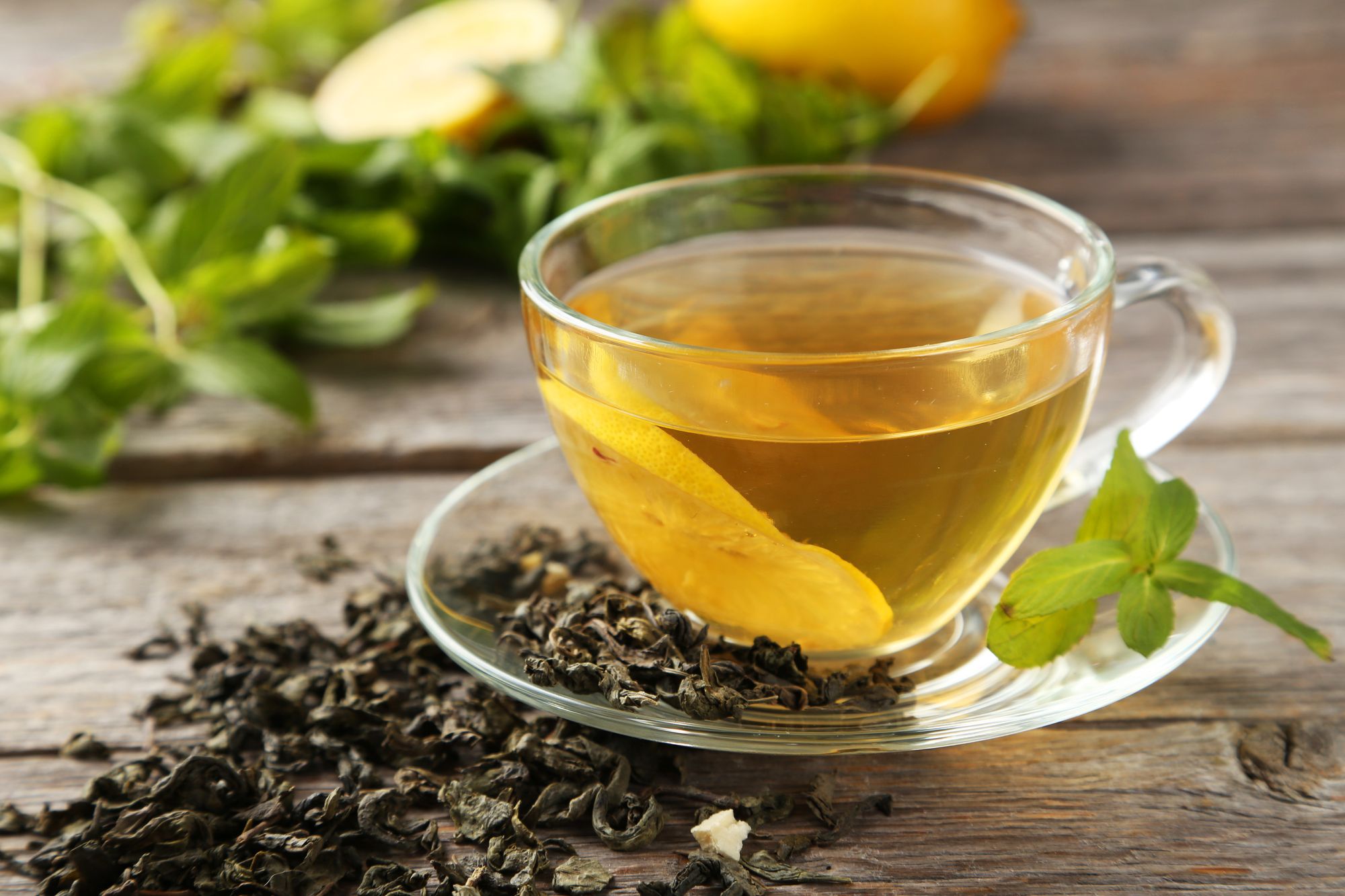
While staying hydrated is crucial for skin health, beverages other than water can also enhance hydration and offer additional skin benefits. Green tea, renowned for its high antioxidant content, provides protection against sun damage. Another study revealed that green tea consumption led to improved skin elasticity, texture, and hydration. Make green tea a part of your daily hydration routine and consider adding a dash of lemon for an extra dose of vitamin C. Avoid adding sugar to your tea, as it can have adverse effects on your skin.
6) Bell Pepper:
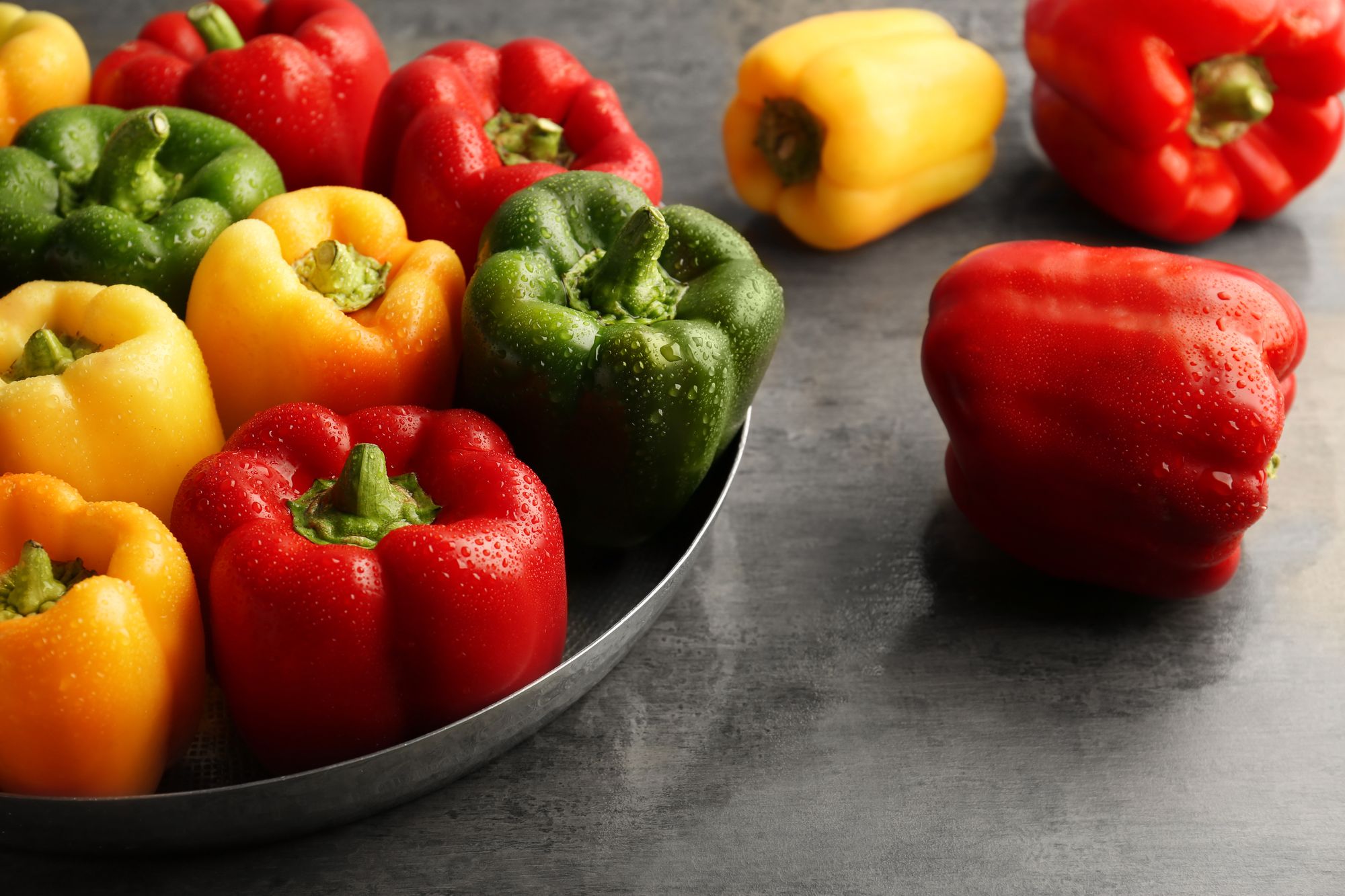
Bell peppers come in a vibrant array of colors, including green, yellow, orange, and red, and they are rich in vitamin C. As mentioned in a previous study highlighting the skin benefits of green and yellow vegetables, bell peppers are no exception. Another study revealed that women with a higher intake of vitamin C were less likely to develop wrinkles. A single cup of chopped green bell pepper provides a generous 120 milligrams of vitamin C, meeting the daily recommended intake for adults. You can enjoy raw bell peppers with your favorite dips, incorporate them into salads, or add them to savory dishes for a delightful crunch and an extra dose of vitamin C.
7) Kiwi:
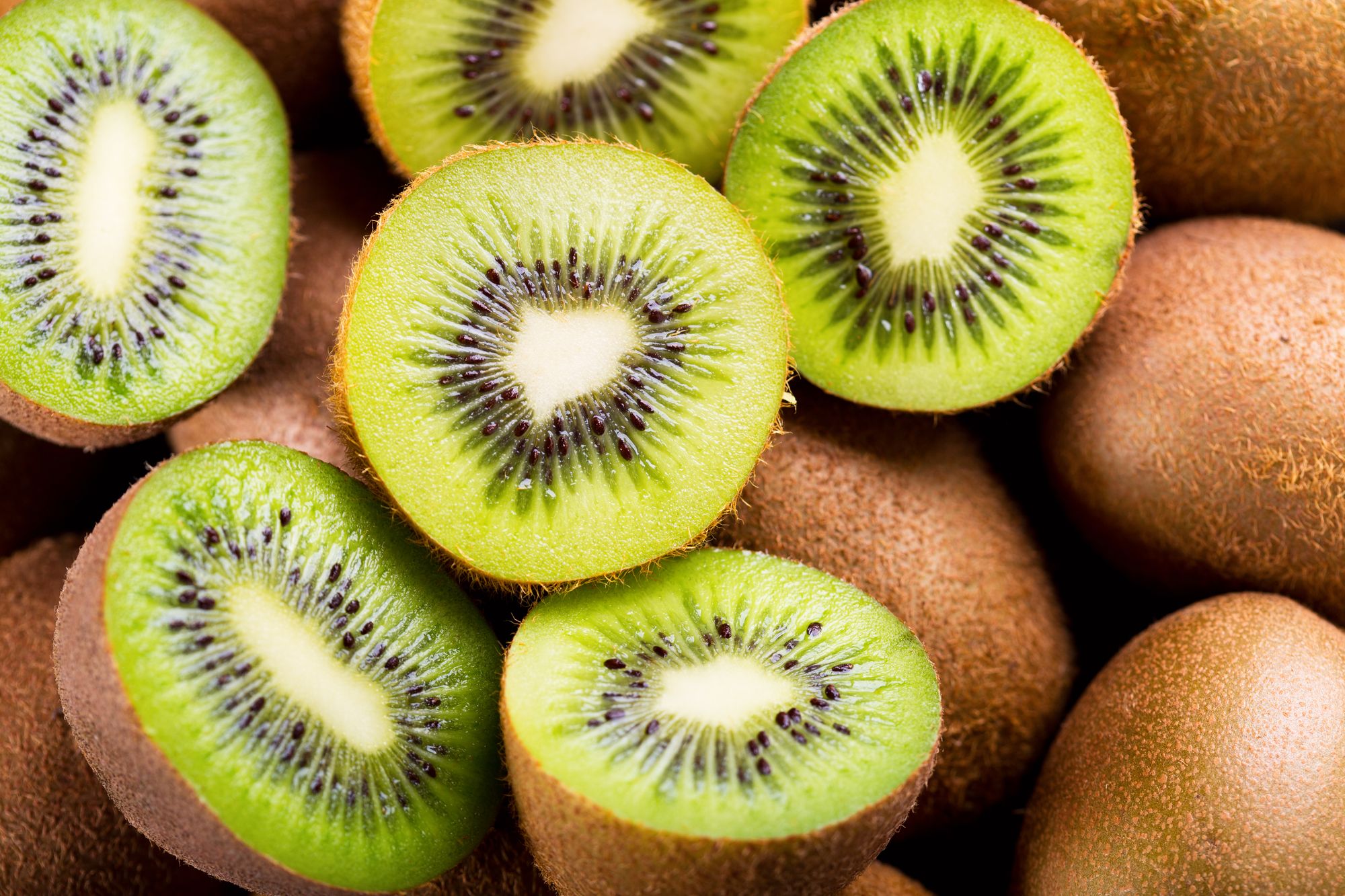
Kiwifruit is yet another vitamin C powerhouse. Not only does one kiwi provide 64 milligrams of vitamin C, but it also contains vitamin E, which plays a crucial role in maintaining skin integrity by shielding the epidermis from harmful UV rays and oxidative stress. Kiwi also boasts antioxidants that further protect your skin cells. Recognizable by its bright green flesh and small black seeds, kiwi is commonly enjoyed in fruit salads or on its own. You can also blend it into smoothies or use it as a topping for parfaits to easily incorporate it into your daily eating habits.
8) Broccoli:
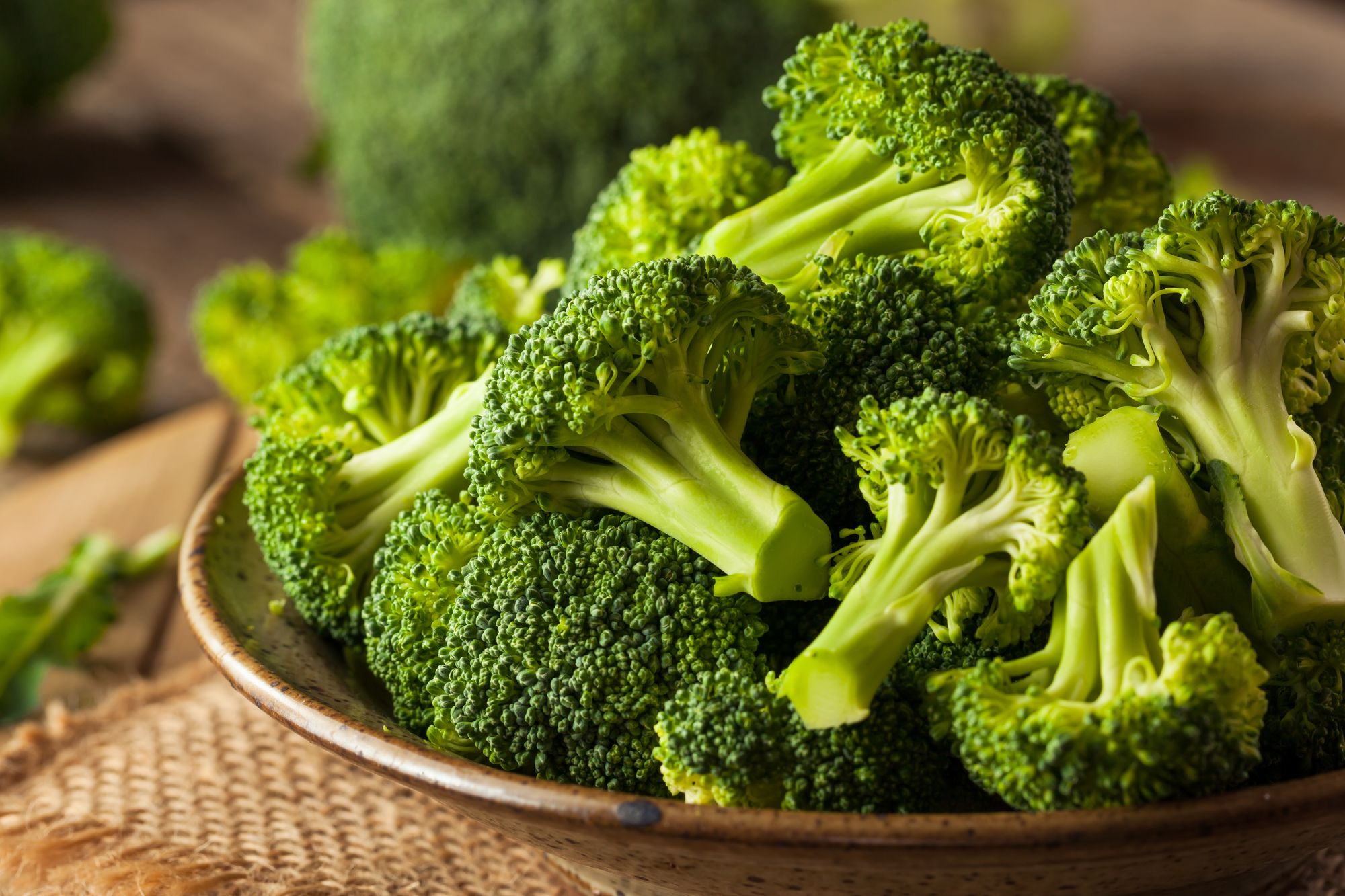
Broccoli, like other green vegetables, offers remarkable benefits for your skin. This is primarily due to its content of zinc, vitamin C, and lutein. Lutein, a type of carotenoid responsible for the yellow, red, and orange hues in fruits and vegetables, has been shown to protect the skin from damage caused by UV rays. While broccoli can be enjoyed both raw and cooked, bear in mind that high-heat cooking methods may reduce its vitamin C content. Other foods rich in lutein include spinach, bell peppers, and carrots.
9) Eggs:

Eggs are not only a source of essential nutrients like protein and fats but also contain skin-protecting lutein. In addition to lutein, the protein in eggs contributes to skin integrity. In fact, one study highlighted that a deficiency in protein and energy can lead to dermal wasting and a reduction in collagen density. Furthermore, as previously mentioned, research has shown that increased total fat intake can positively impact skin elasticity. Eggs are a convenient source of protein, fat, and lutein, making them an excellent addition to your daily diet to promote skin health. Whether fried, boiled, scrambled, or poached, eggs can be prepared in a variety of ways and easily paired with other skin-nurturing foods.
10) Olive Oil:
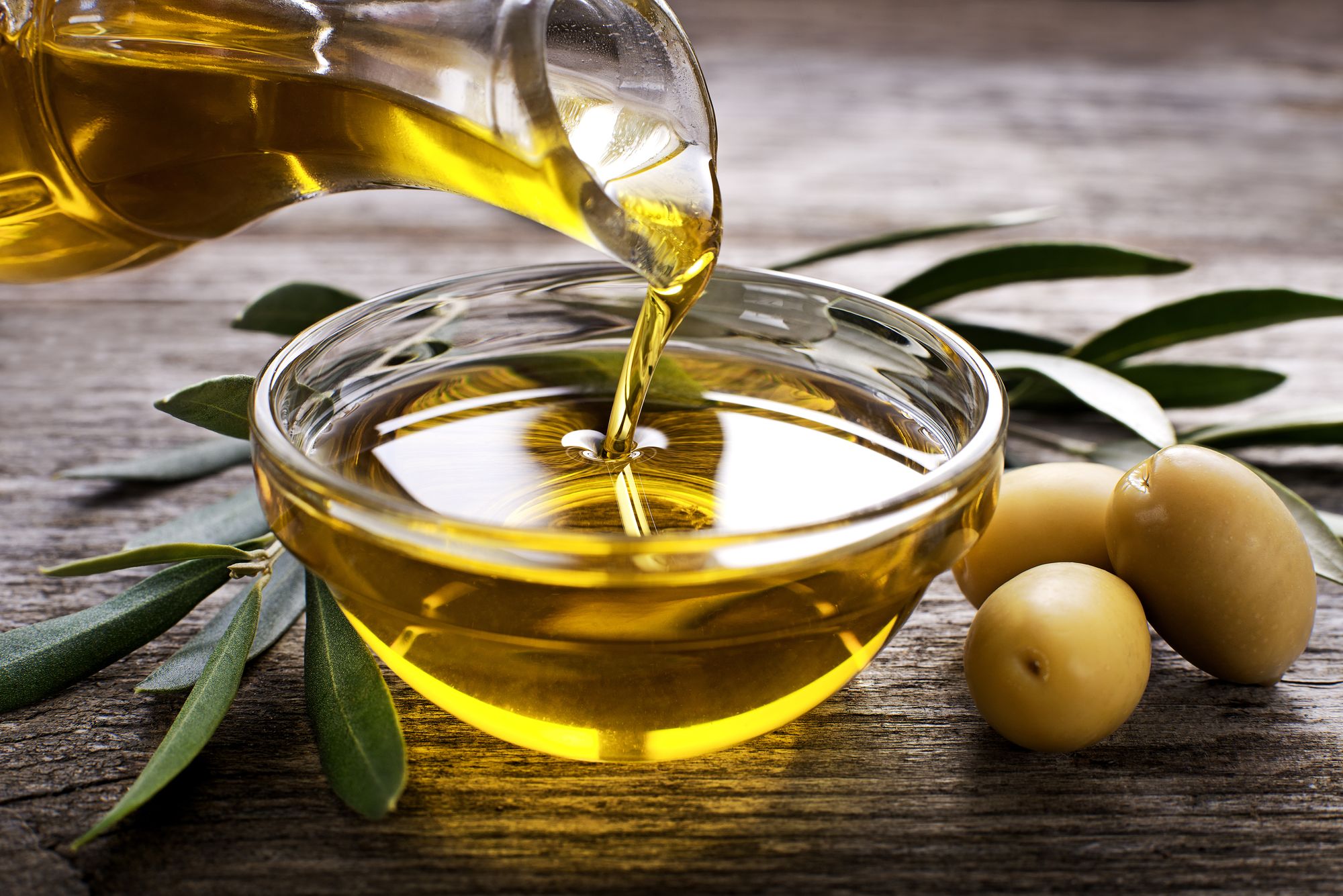
Olive oil is a versatile ingredient suitable for both sweet and savory dishes. It is packed with healthy fats, with one tablespoon containing approximately 14 grams of mostly unsaturated fats. Additionally, olive oil contains vitamin E, which shields the skin from UV rays and can enhance the absorption of carotenoids, another group of skin-friendly nutrients. Carotenoids are found in various foods on this list, including orange bell peppers, tomatoes, and broccoli, as well as in kale, spinach, and carrots. Preparing these vegetables with olive oil may maximize the skin benefits derived from your produce. When selecting olive oil, consider Terra Delyssa, an exceptional option made from olives cultivated without the use of chemicals or pesticides. They even offer a unique traceability feature that allows you to track the olives' journey from the orchard to the filling of their dark glass bottles.
11) Strawberries:
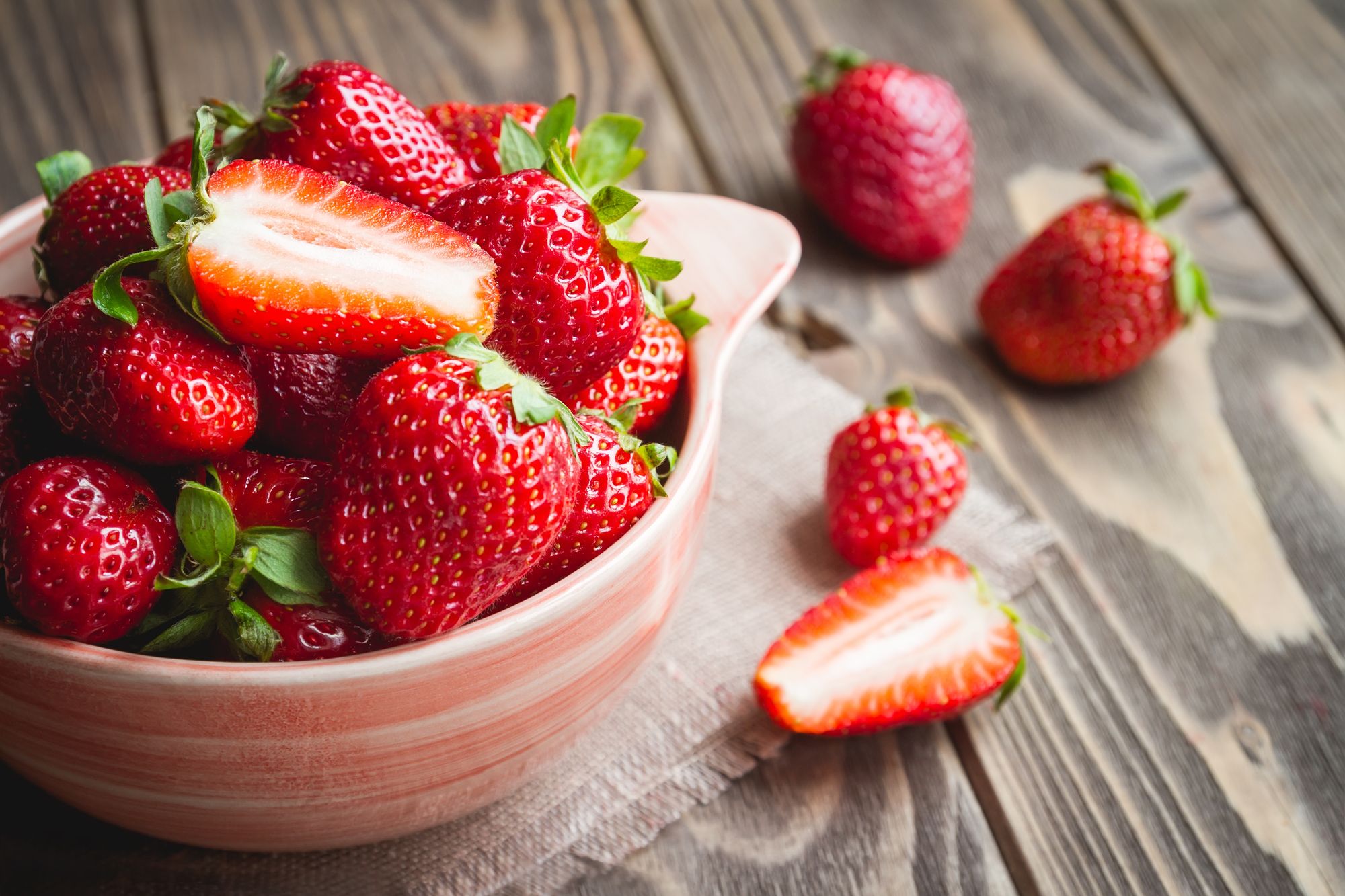
Strawberries, with their rich content of antioxidants and vitamin C, offer significant benefits to the skin. These antioxidants not only support skin health but also possess potential anti-inflammatory properties that could be effective in treating acne. When consumed, vitamin C can serve as an anti-inflammatory agent within the body, addressing various skin concerns. Additionally, vitamin C can also be applied topically for further skin benefits. To maintain a diet rich in vitamin C, include strawberries and various fruits throughout your day. You can incorporate them into snacks and meals or make the switch from sugary desserts to this naturally sweet fruit.
12) Bone Broth:
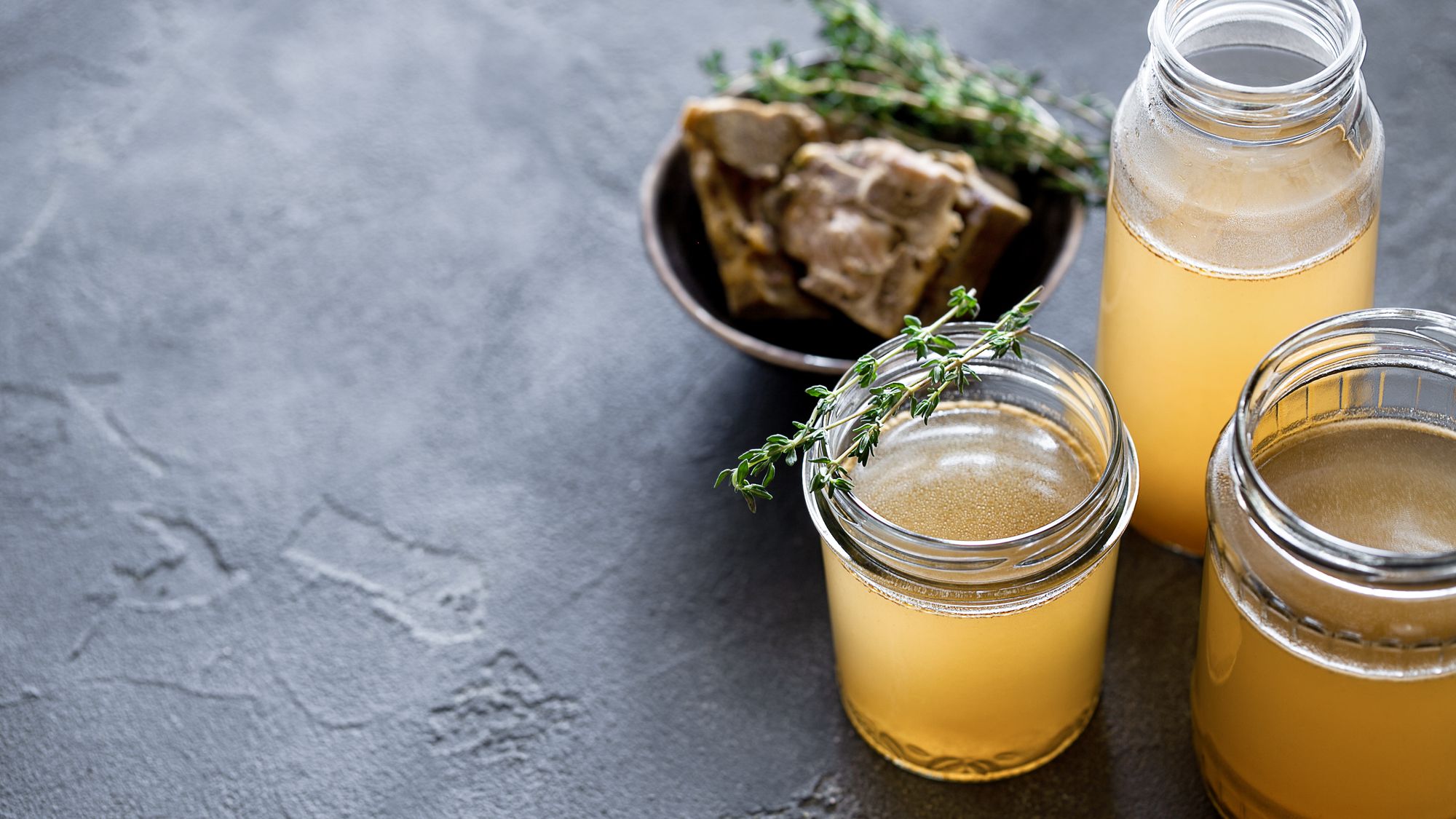
Bone broth is a valuable source of essential nutrients, protein, and collagen, all of which can contribute to healthier skin. Protein has been shown to reduce dermal wasting, and collagen consumption can help reduce and delay the signs of skin aging. Sipping on bone broth is a delicious way to increase your collagen intake. For instance, Azuluna Pasture-Raised Chicken Bone Broth offers 14 grams of protein and 8 grams of collagen. Not only does this benefit your skin, but Azuluna also prioritizes ethical practices, using pasture-raised chickens and regenerative farming methods that benefit both people and the planet. You can enjoy it on its own as a simple snack or incorporate it into broth-based dishes to give your nutrition a boost.
13) Sunflower Seeds:
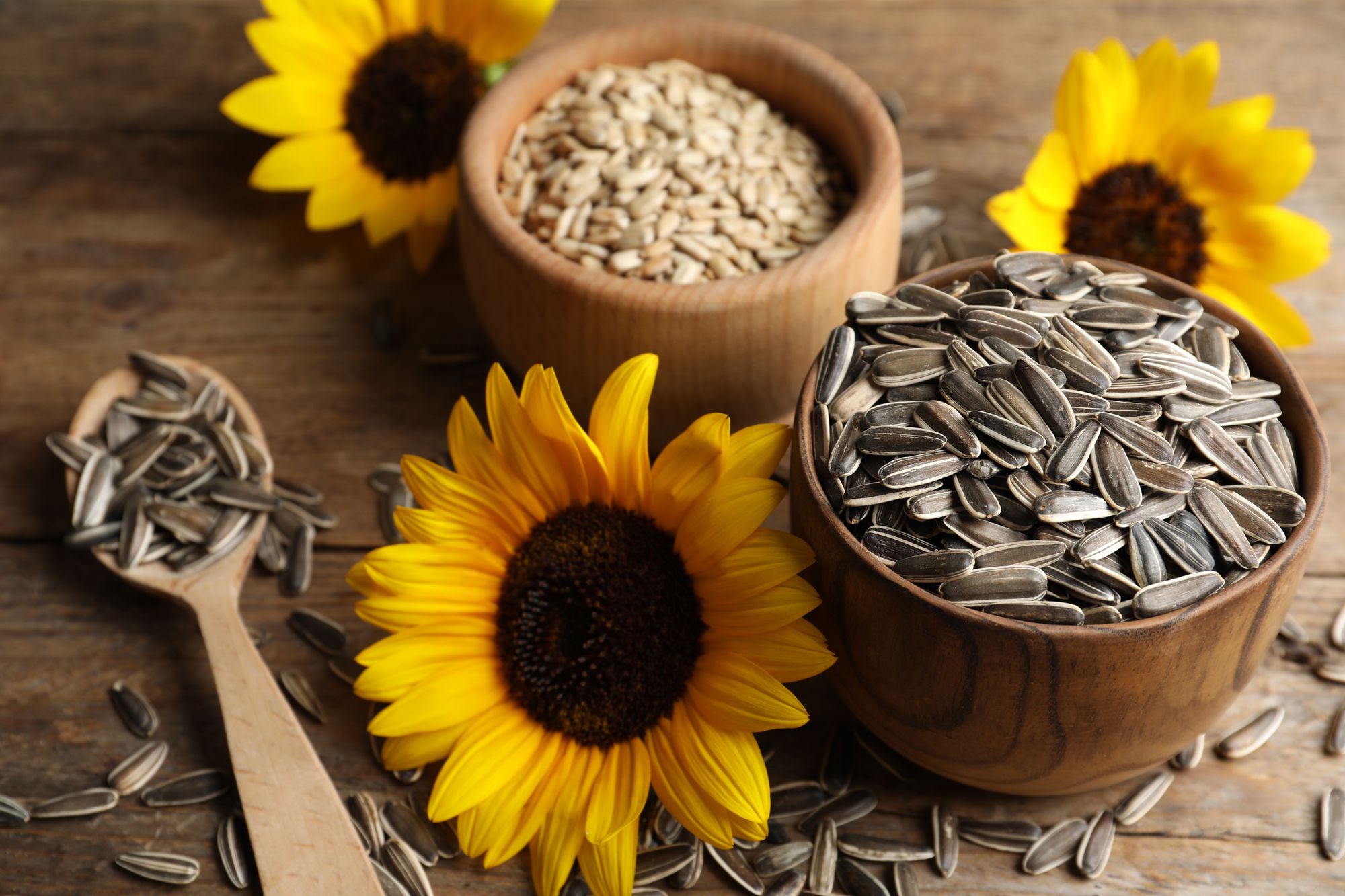
Many nuts and seeds provide essential nutrients that promote skin health. Sunflower seeds, in particular, are a rich source of vitamin E, zinc, healthy fats, and protein, all of which contribute to skin appearance and well-being. Dietary protein plays a crucial role in repairing skin tissue and is integral to the skin's natural renewal cycle, which spans 28 days. As a convenient source of protein and other skin-nourishing nutrients, sunflower seeds deserve a spot on your list of skin-friendly foods. Moreover, they can be a suitable alternative for those with nut sensitivities or allergies. Incorporate sunflower seeds into your trail mix, add them to oatmeal or salads, or use them as a crunchy topping for muffins and bread in your baked goods.
14) Cherries:
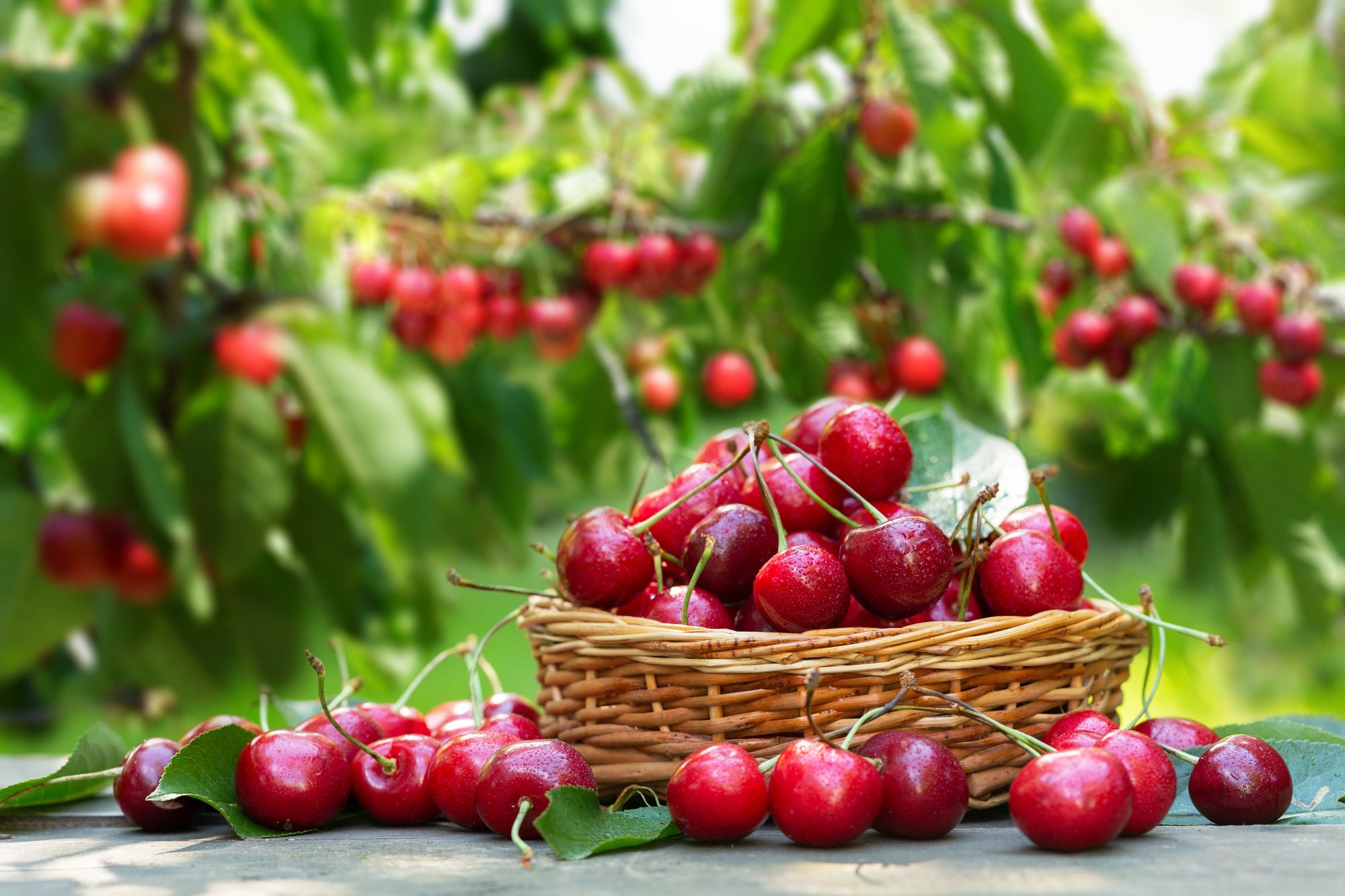
These petite, vibrant red fruits are another powerhouse of antioxidants, making them a valuable addition to your diet for skin health and overall well-being. Cherries are packed with vitamins C, E, and A, all of which possess antioxidant properties. Tart cherries, in particular, have a high concentration of melatonin, a hormone known for its sleep-regulating capabilities. Consuming cherries and cherry juice can aid in promoting better sleep, which, in turn, can benefit your skin. In fact, chronic sleep deprivation has been associated with a compromised skin barrier function. With its multifaceted benefits for skin health, consider incorporating whole cherries into your meals or snacks. Alternatively, add unsweetened cherry juice to your favorite smoothie, along with other skin-enhancing ingredients.

